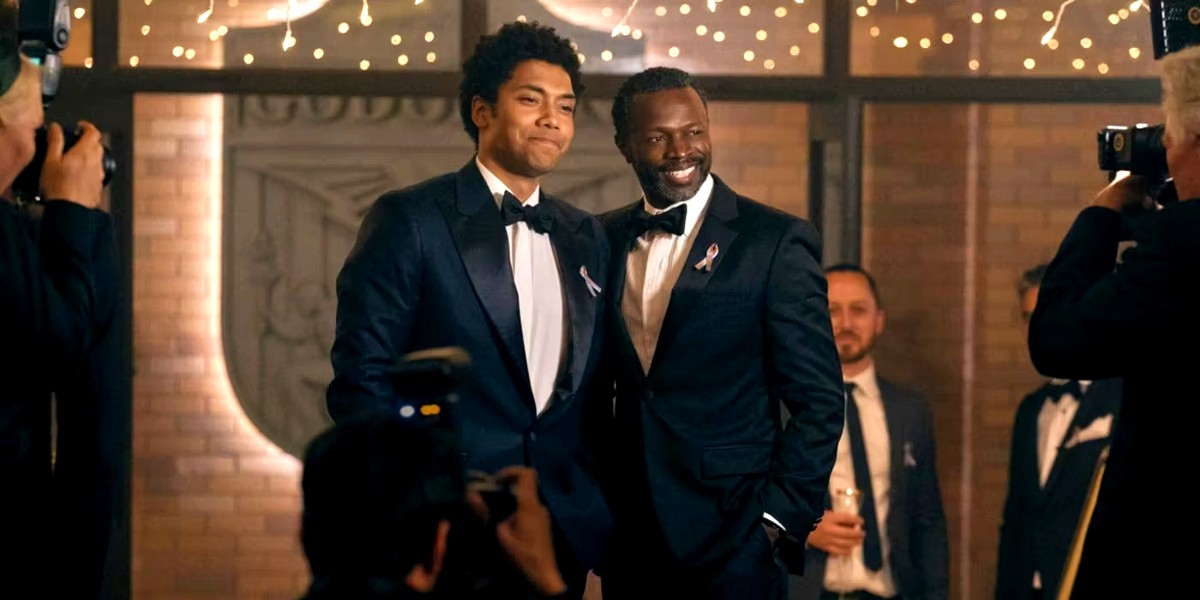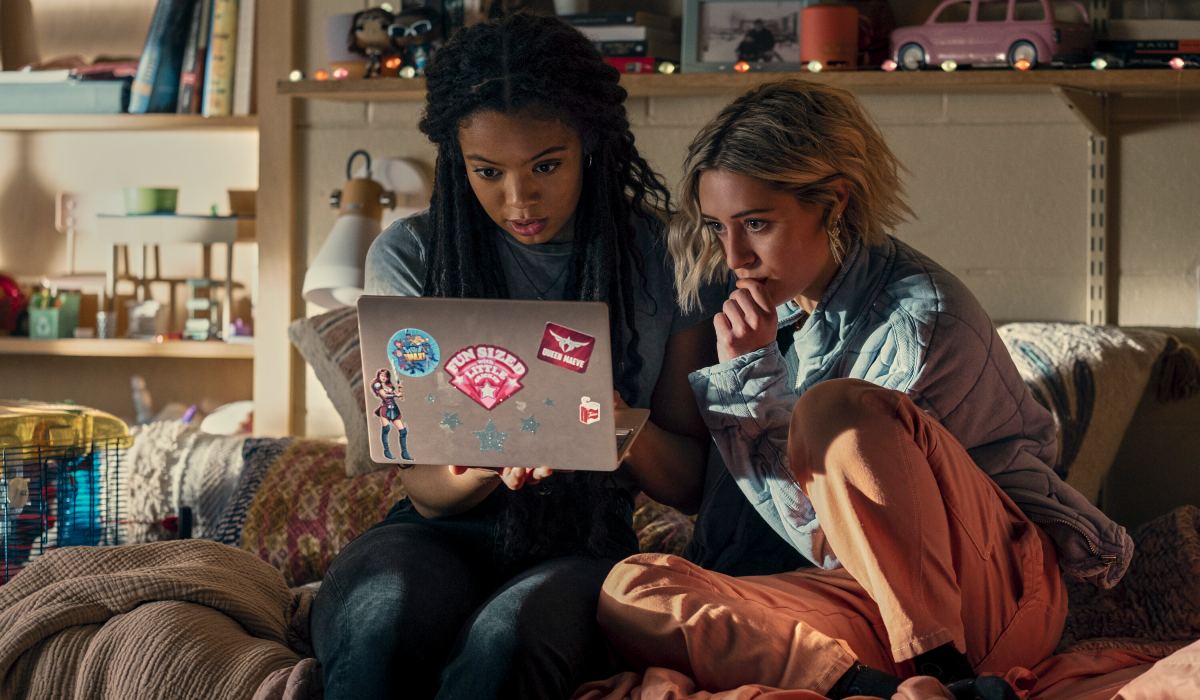‘Gen V’s Parents Are the Perfect Analogy for Today’s Exploitative Influencer Parents

If there’s one thing that Gen V‘s three-episode premiere established, it’s that this generation of supes’ parents are terrible. As The Boys previously established, supes aren’t born—they’re made. Vought International created a serum called Compound V to allow humans to manifest superpowers. While the serum can negatively affect adults, it was discovered to be more effective when injected in newborns. As if using drugs to create superheroes artificially wasn’t bad enough, Vought started experimenting on babies with Compound V.
Now, one might think that Vought was just secretly and nonconsensually doing this because, surely, no parent would agree to have their newborn injected with a dangerous serum with no way to predict side effects or how these powers might manifest in a mere child. Unfortunately, The Boys also established that Vought typically got parental permission for these experiments, usually enticing parents with money and the promise of fame to get their approval. With Gen V focusing on the younger generation of supes, we’re finally starting to see just how horrific these parents’ decisions were.
What’s even scarier, though, is how closely these Gen V parents parallel real-life parents who see their kids as money-makers and their ticket to fame.
Gen V‘s parents are influencer parents

Gen V‘s parents are essentially The Boys universe’s version of influencer parents or manager parents. They’re parents who see themselves less as parents and more as self-appointed PR managers intent on getting their children famous. Meanwhile, none of them are doing this because they actually care about their child’s success and well-being—they’re doing it for themselves.
Polarity (Sean Patrick Thomas) wants Andre (Chance Perdomo) to be successful so that he can rub it in the faces of his fellow Godolkin alumni. Little Cricket’s (Lizze Broadway) mother obviously wants to live through her daughter, given how giddy and excited she is at the thought of getting to do a reality show. Then, there are Jordan Li’s (Derek Luh and London Thor) parents, who are furious that Jordan’s powers manifested to reinforce their identity rather than in a more marketable way.
Jordan, Little Cricket, and Andre are clearly miserable when their parents show up at the university’s gala in the show’s third episode. They are instantly forced into interviews they don’t want to do, shoved in front of cameras, and even publicly have their deepest secrets and insecurities spoken about to entice the media further. While these parents are all smiles for the camera, behind the scenes, it’s constant warnings, criticisms, nitpicking, coldness, and even misgendering. There’s little indication of love, affection, or parental instincts, just the desire for their children to be perfect, fame-garnering, money-making machines.
However, they have no right to criticize or ask anything of their children. Not after they chose to inject them as newborns with a dangerous substance and forced them into a superhero life they didn’t want. Most of these young college students have been through terrible trauma, and some have even accidentally caused deaths because their powers manifested in a way they couldn’t control. Most of these parents didn’t even have the decency to tell their kids what they did, just let them walk around like a ticking time bomb, knowing they could spontaneously combust or have lasers blast uncontrollably from their eyes at any second.
Gen V parents eerily parallel today’s exploitative parents

Manager parents are nothing new, surfacing when child stars first became more prominent. Wil Wheaton, Jennette McCurdy, and Macaulay Culkin are just a few examples of child actors who have reported that their parents exploited them, forcing them to work to support their entire families, taking all their earnings, and trying to live vicariously through them. (And the practice goes back much farther, as studio system child stars like Judy Garland showed.) While legislation has arisen to offer more protection to child actors, more parents are turning to social media to exploit their children. With no laws requiring that children be compensated for earning their parents money through social media, countless parents have made their entire careers putting their children on the internet.
Similar to how the Gen V students never asked to be superheroes, many children of family vloggers didn’t ask to be social media stars. Their parents decided for them that this is who they would be and what they would do. Family vloggers like 8 Passengers, April and Davey, YAWI Family, ACE Family, and The Leroys are estimated to have made millions from vlogging their children’s daily lives. The kids are constantly filmed, forced to do challenges or skits, and have their most private moments publicized to garner views. These parents don’t care that these children have no privacy, work without compensation, and are extremely vulnerable to harassment, stalking, predators, and cyberbullying. Additionally, some, such as 8 Passengers, have been found to be abusing their children behind the scenes and depriving them of basic necessities despite them providing for the entire family.
While watching Gen V, it’s initially hard to imagine how these parents could choose to give their babies Compound V. However, it doesn’t sound so far-fetched when looking at today’s family vloggers and influencer parents and children. All it would take is for one TikToker or YouTuber to recognize how many views a superpowered kid would get, and then we’d have our own generation of supes. Fortunately, Gen V‘s depiction of this phenomenon is far from aspirational. It’s doubtful anyone will walk away from the show sympathizing with the parents and saying, “Oh, but it’s fun for the kids to have superpowers.” Yet, these are exactly the kinds of excuses that commonly pop up when it comes to parents filming kids.
Wil Wheaton recalled meeting an influencer mom who defended making her son start his own channel, saying, “He loves it! He’s always having fun.” It’s not just the parents but commenters and followers, too, who insist that child vlogging isn’t that bad. Sure, these kids might be having their daily lives watched by predators, but who cares? They (allegedly) get to have fun! If hordes of people weren’t supporting these parents’ terrible decisions, channels like 8 Passengers and DaddyOFive wouldn’t have been able to make multiple returns to social media after being accused or found guilty of abuse.
This is why Gen V‘s eye-opening depiction of influencer parents is important. It drives home the point that children are not property or money-makers. They are just children who want to live normal lives. In Gen V, most of these students, if they had the choice, seem like they would trade their powers in an instant in exchange for undoing all the trauma they’ve experienced for it. A little bit of money and fame isn’t worth losing your entire childhood and livelihood. Let kids be kids and choose for themselves who they want to be.
(featured image: Amazon Prime)
Have a tip we should know? [email protected]